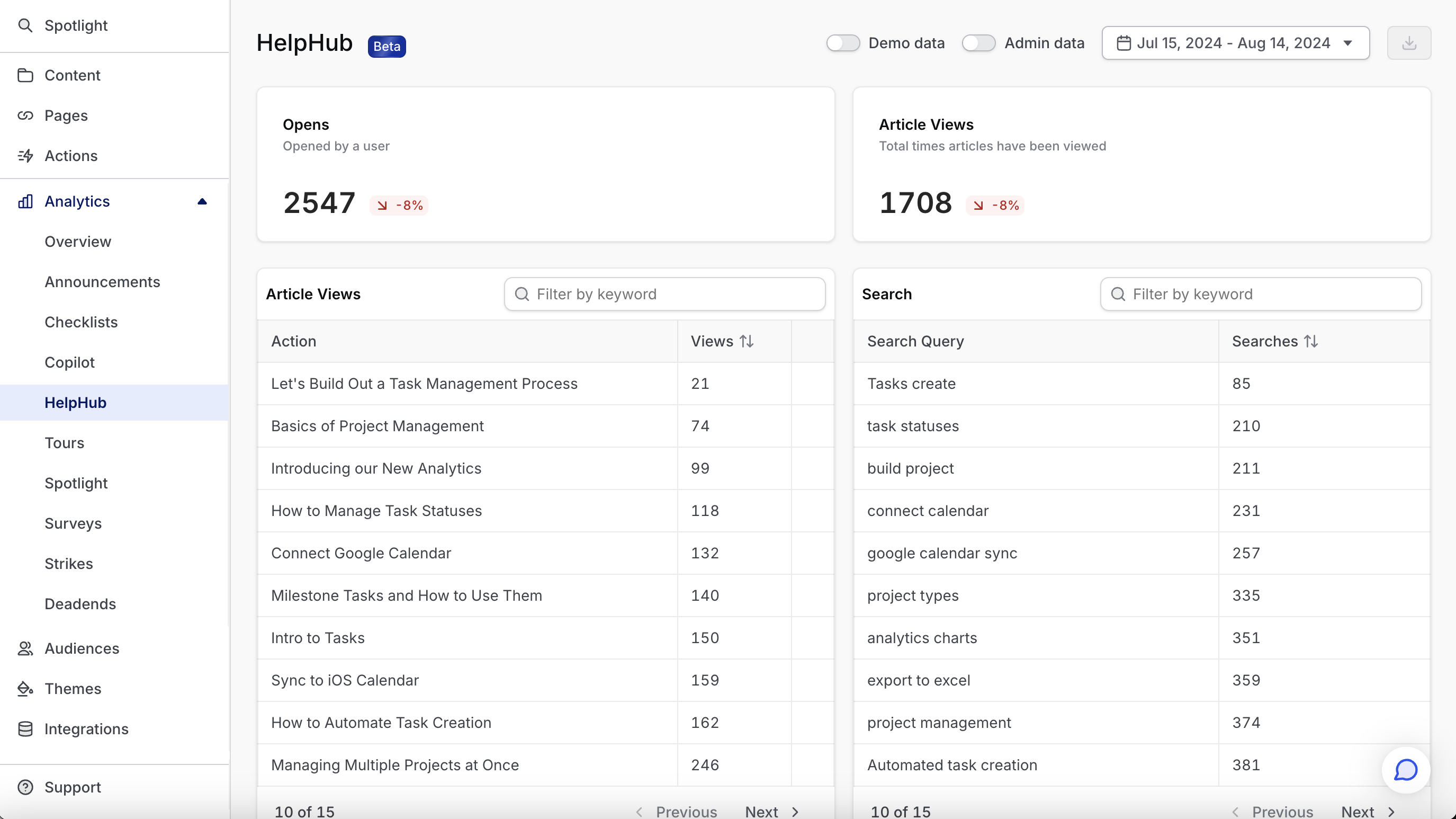HelpHub analytics
HelpHub is like a personalized magazine, built for each user and remixed every time they access it depending on where they are and what they’re doing in your product?
How do you evaluate a magazine? How often are people reading it, and when they, do what do they read? In HelpHub’s case that means article views as well as searches (isn’t that cool - a magazine where users tell it what they want to read!).
Overview page

Opens
The total number of times HelpHub was opened in the period selected. Note that this counts any time a user opens HelpHub, so a single user could contribute multiple opens in the same period. Opens does not capture what happens after the user opens — whether they leave, search, or read a bajillion articles.
Articles viewed
This stat captures the number of times an article was viewed inside HelpHub. Note that this stat includes any situation where a user launches a different experience from HelpHub, like opening a page, triggering an action, trigger a product tour, or launching a video.
Article views
This table shows the articles that are most frequently accessed from HelpHub, in the period provided. Again, note that views could come from a single user or multiple users. This table does not distinguish between articles opened from a HelpHub recommendation set or via search.
Clicking a row in this table will teleport you to the article’s settings page, in case you want to fiddle with anything.
Searches
This table captures the most common searches users perform in HelpHub. Today, this table is, we admit, pretty rudimentary. But it will be graduating from elementary school soon. For now, please note the following limitations:
- Searches are shown exactly as they are worded, which means they are not grouped by concept (semantic grouping) and single letter changes (like typos) will show up as distinct queries.
- The table does not distinguish between instances where a search yielded results and whether a user selected any of those results from HelpHub. For that, we have our upcoming Deadends analytics page.